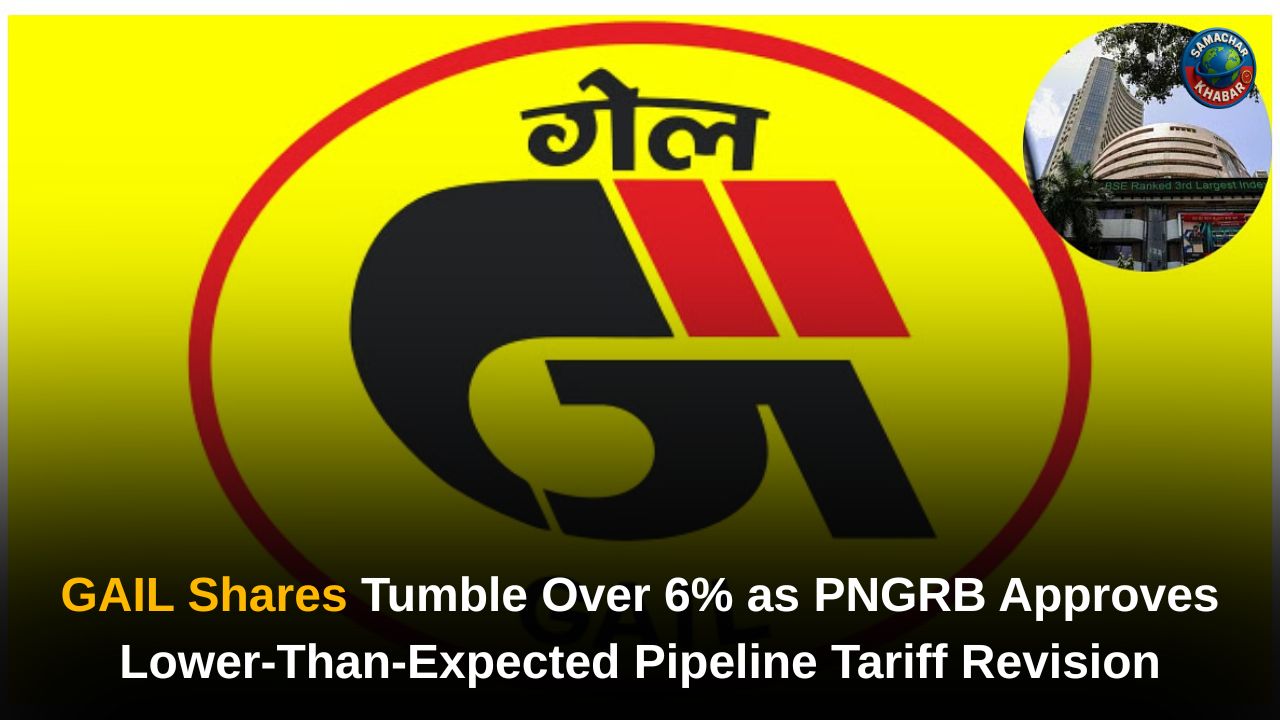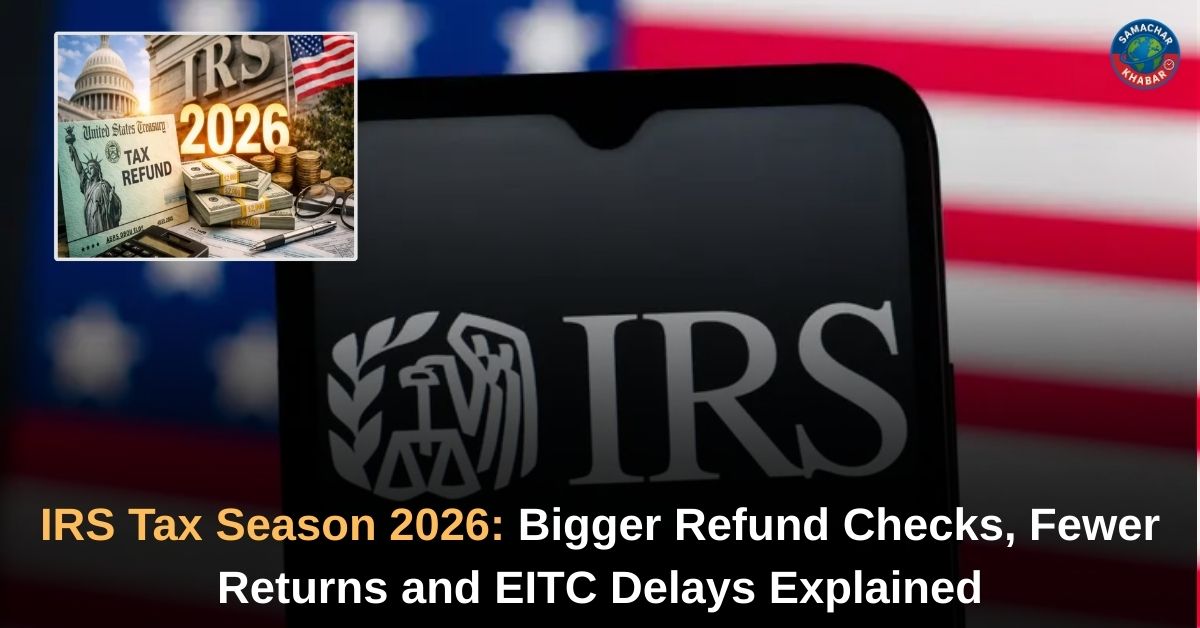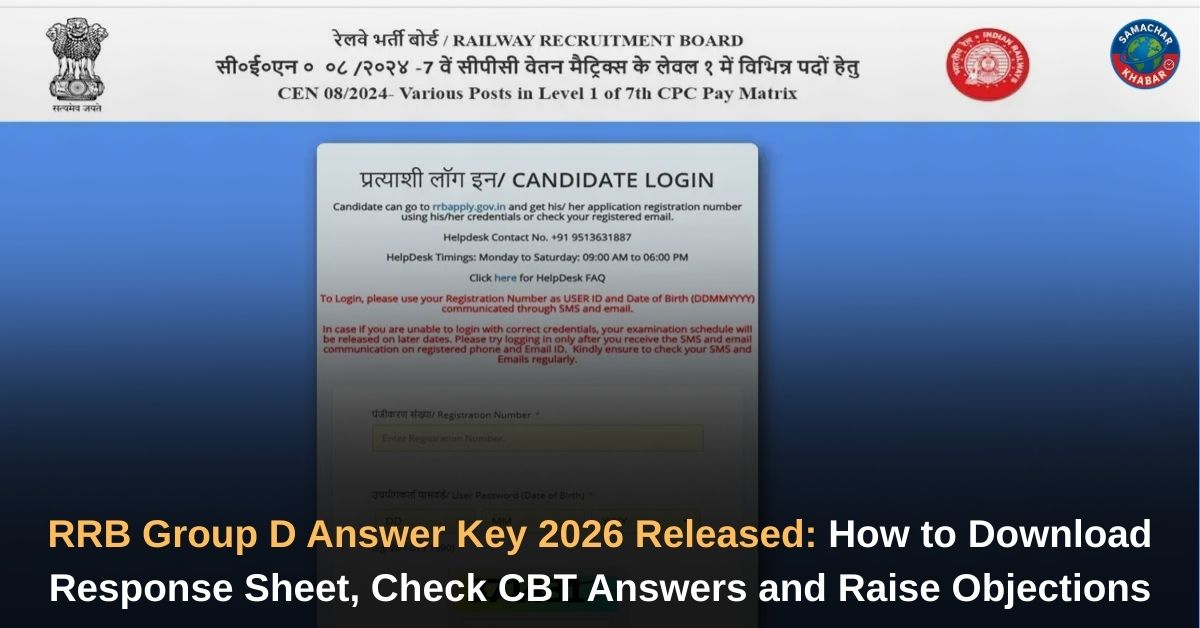GAIL shares fell sharply on Friday after the Petroleum and Natural Gas Regulatory Board (PNGRB) released its long-awaited revision of the integrated natural gas pipeline tariff. The regulator approved a tariff of ₹65.69–₹65.7 per MMBtu, marking a 12% increase from the current ₹58.6/MMBtu. However, the hike is significantly lower than GAIL’s request for ₹77.98–₹78/MMBtu and also below market expectations.
Analysts from UBS, Citi, and ICICI Securities noted that the revision covers only limited cost adjustments, with major parameters deferred to FY28. The stock dropped over 6% intraday as investors reacted to the lower-than-expected tariff order.
Key Takeaways of the GAIL–PNGRB Tariff Revision
- PNGRB approved an integrated pipeline tariff of ₹65.7 per MMBtu, a 12% hike from ₹58.6.
- Tariff is far below GAIL’s demand for ₹78/MMBtu and below street expectations of 15–20%.
- Major cost revisions—capex, opex, losses, working days, revenue sharing—postponed until FY28.
- Analysts see near-term EPS impact of 2.5-4.7% for FY27–FY28.
- GAIL expects ₹1,200–1,350 crore EBITDA boost from the interim tariff hike.
- Both UBS and ICICI Securities maintain Buy ratings with ₹215 target price.
PNGRB’s Tariff Decision Falls Short of GAIL’s Expectations
The PNGRB’s long-pending tariff revision arrived after months of delay, setting the unified transmission tariff at ₹65.69–₹65.7 per MMBtu, effective January 1, 2026. This represents a 12% increase but remains well below GAIL’s requested tariff of ₹77.98/MMBtu. The company had projected a potential boost of nearly 35% based on its filing and had expected significant support to cover operational costs and incentivize network investments.
The approved tariff also disappointed the market, as analysts had been anticipating a higher figure in the ₹67–₹70/MMBtu range. The decision triggered an immediate sell-off, with GAIL shares slipping over 6% intraday to ₹172.22.
Broader Market Reaction and Share Price Trends
GAIL’s stock, which closed at ₹183.80 on Thursday, came under pressure early Friday following the announcement. While the stock had gained nearly 4% over the past month, it still remains 3.7% lower in 2025 to date. The tariff disappointment, coupled with a delay in full-cost adjustments, contributed to the sharp intraday decline.
What Analysts Are Saying: UBS, Citi & ICICI Securities
UBS: “Hike Lower Than Expected; Realised Tariffs May Be Even Lower”
UBS termed the tariff revision disappointing. According to the brokerage, the announced 12% increase does not necessarily translate into an equal rise in realised tariffs. UBS highlighted that only two parameters were adjusted at this stage:
- ₹5.16/MMBtu increase from higher System Usage Gas (SUG)
- ₹1.92/MMBtu increase due to lower volume divisor under updated capacity norms
The firm believes that a complete parameter revision now would have led to a steep tariff increase, placing financial pressure on customers—hence the regulator’s cautious approach. UBS maintained its Buy rating with a ₹215 price target.
Citi: “Tariff Below Forecasts, But Stock Reaction Should Be Positive”
Citi noted that the tariff increase is below its 15% forecast and much lower than GAIL’s 33% expectation. However, the firm believes the move could still trigger the rollout of a new unified tariff regime, which is positive for the natural gas ecosystem. Citi expects the stock to react constructively over the medium term.
ICICI Securities: “EPS Hit Likely, But FY28 Review Offers Upside Risk”
ICICI Securities stated that its base-case expectations were of a 15% increase from FY27. The approved hike will therefore result in a 2.5%–4.7% EPS impact for FY27 and FY28. The brokerage also pointed out that major adjustments—future capex, opex, transmission losses, revenue-sharing corrections—have been deferred.
Despite the near-term earnings pressure, ICICI Securities maintained its Buy recommendation with a ₹215 target, citing upside potential during the next full tariff review in FY28.
GAIL’s Management Responds to the Tariff Order
In an interaction with CNBC-TV18, GAIL’s management stated that the approved tariff is expected to add ₹1,200 crore to its transmission EBITDA in the current year and ₹1,350 crore next year.
Also Read: Nvidia’s $5 Billion Investment: Intel Share Price Skyrocket
Director (Finance) Rajesh Kumar Jain also mentioned a ₹5 gap between GAIL’s expectations and the regulator’s decision. He said the company will review the order and evaluate whether the matter requires reconsideration.
Deferred Parameters and Next Review Cycle: What Changes in FY28?
PNGRB clarified that the current revision includes only limited adjustments. The following critical cost elements will be reviewed in FY28, with new tariffs effective from April 1, 2028:
- Actual and future capital expenditure
- Operating expenditure
- Transmission loss
- Working days
- Revenue-sharing adjustments
- Any other relevant amendments
This means that the 2026 tariff is largely an interim relief, with substantial rebalancing expected during the next cycle.
Broader Implications for GAIL and the Gas Sector
The PNGRB’s tariff revision signals a cautious midway approach, offering GAIL moderate short-term relief while avoiding sudden cost escalation for end-users. Although the 12% hike is lower than the company’s expectations and market estimates, it still provides meaningful EBITDA support. The real inflection point, however, lies in FY28, when the regulator will reassess all major cost parameters.
Analysts believe this next review could unlock substantial upside for GAIL, provided capex and operating expenses are fully recognised. Until then, the company must navigate near-term earnings pressure while the broader gas infrastructure ecosystem awaits deeper tariff rationalisation.
FAQs on GAIL–PNGRB Pipeline Tariff Revision
1. Why did GAIL’s share price fall over 6%?
GAIL’s share price fell after PNGRB approved a lower-than-expected pipeline tariff of ₹65.7/MMBtu versus the company’s demand of ₹78/MMBtu.
2. What tariff has PNGRB approved for GAIL’s pipeline network?
PNGRB approved a revised tariff of ₹65.7 per MMBtu, reflecting a 12% increase from the earlier ₹58.6/MMBtu.
3. When will the new GAIL pipeline tariff become effective?
The revised transmission tariff will be effective from January 1, 2026, as per PNGRB’s order.
4. How will the tariff revision impact GAIL’s earnings?
Analysts expect a 2.5–4.7% EPS hit for FY27–FY28, though GAIL anticipates ₹1,200–1,350 crore EBITDA gains.
5. When will the next full tariff review take place?
PNGRB will conduct the next comprehensive tariff review in FY28, with the new rates applicable from April 1, 2028.














